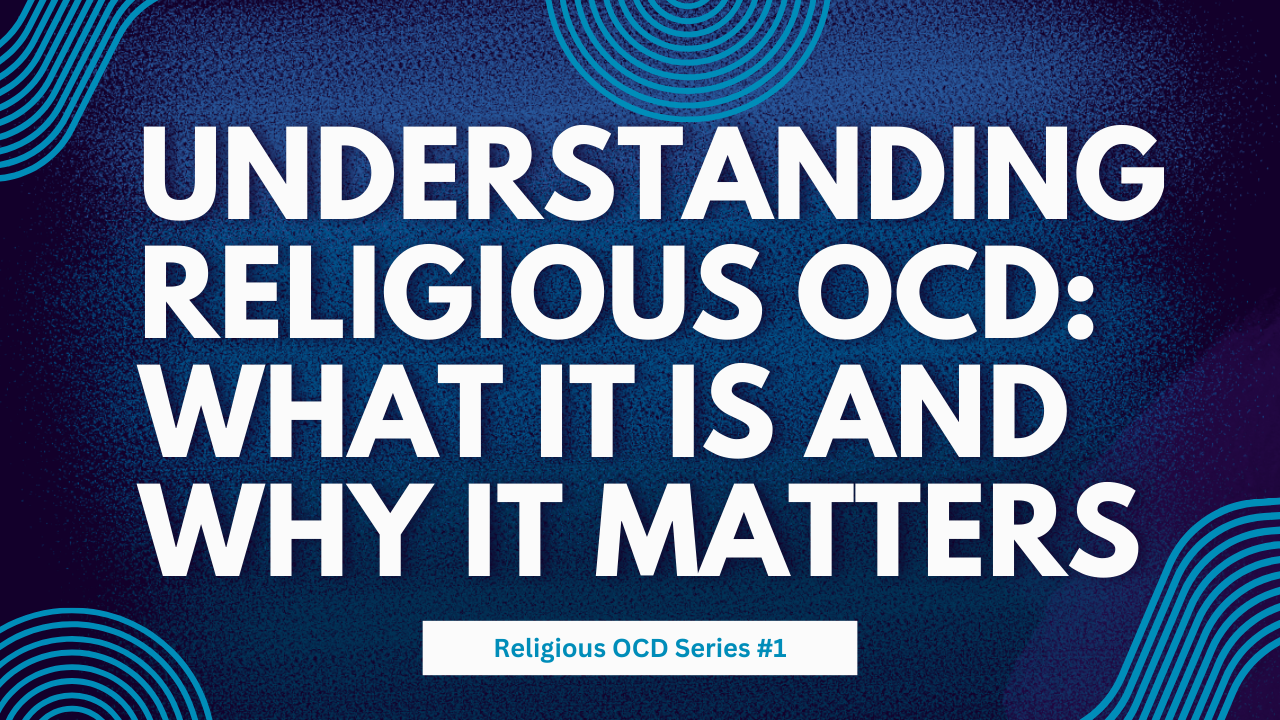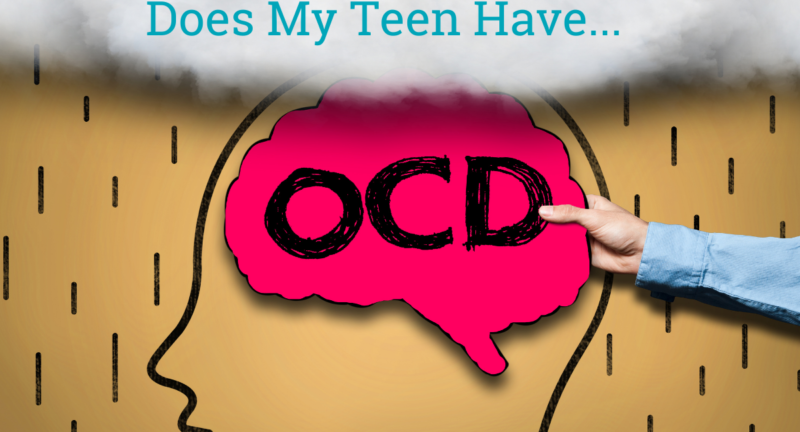
Understanding Religious OCD: What It Is and Why It Matters
This blog is part of the Religious OCD Series by Dr. Brian Briscoe.
OCD tends to latch onto what a person holds most dear, turning their deepest values—such as faith—into sources of anxiety and distress.
Introduction
Imagine feeling an overwhelming fear that you’ve unknowingly committed a sin, even though you have done nothing wrong. Or obsessing that a past sin you have committed has not been forgiven, even though you have accepted Christ and know that in Him all sins are forgiven. You pray repeatedly, seeking reassurance from God, yet the fear does not go away. You confess the same sin over and over, but relief never lasts. Instead, doubt creeps back in, stronger than before. This is the reality for many individuals suffering from Religious OCD, also known as scrupulosity.
What Is OCD?
Obsessive-Compulsive Disorder (OCD) is a mental health condition characterized by intrusive, unwanted thoughts (obsessions) and repetitive behaviors or mental rituals (compulsions) performed to relieve distress. These compulsions offer temporary relief but ultimately reinforce the obsessive cycle, making the problem worse over time.
What Is Religious OCD (Scrupulosity)?
OCD obsessions and compulsions tend to center around the things that people care about the most. For some, OCD manifests as overwhelming fears about harm coming to their child. For others, it revolves around fears of contamination or illness. In many cases, OCD latches onto what a person holds most dear. Religious OCD occurs when these obsessive fears and compulsions creep into a person’s religious or spiritual life, distorting their faith experience and turning it into a source of distress rather than peace.
Religious OCD, or scrupulosity, is a subtype of OCD in which a person experiences excessive worry about religious or moral matters. Because faith is so central to a believer’s identity, OCD may distort genuine devotion into an exhausting cycle of fear, doubt, and compulsive reassurance-seeking. Common fears include:
- Doubting one’s salvation
- Fear of committing the unforgivable sin
- Worrying that thoughts themselves are sinful
- Repeatedly seeking reassurance from pastors or loved ones
- Feeling compelled to engage in excessive prayer, confession, or ritualistic behaviors
While it is natural for Christians to care about living righteously, scrupulosity takes these concerns to an extreme, leading to distress and interfering with one’s ability to experience God’s love and grace.
A Story of Religious OCD in Action
Let’s take a look at a hypothetical case:
Sarah is a devoted Christian who deeply desires to follow God. Her faith is one of the most important aspects of her life, making it a prime target for OCD-related fears. She begins experiencing persistent thoughts that she might have unknowingly blasphemed the Holy Spirit. These thoughts terrify her. She starts praying compulsively, asking God for forgiveness hundreds of times a day. She seeks reassurance from her pastor, who tells her she hasn’t committed the unforgivable sin, but the doubt returns almost immediately. Instead of feeling peace, Sarah feels trapped in an exhausting cycle of fear and rituals.
Sarah’s story reflects the struggle of many believers with Religious OCD. Instead of drawing closer to God, their faith becomes a battleground of relentless doubt and anxiety. What she values most—her faith—has become a source of distress rather than comfort.
Why This Matters
Scripture reminds us that God’s love is steadfast, and our salvation is secured through faith in Christ:
“For by grace you have been saved through faith, and this is not your own doing; it is the gift of God, not a result of works, so that no one may boast.” (Ephesians 2:8-9)
Recognizing that salvation is based on God’s grace—not our ability to achieve certainty—can help free those trapped in the cycle of Religious OCD.
Many people suffering from scrupulosity believe their distress is a sign of spiritual failure. However, Religious OCD is not a lack of faith—it is a mental health condition. Recognizing this distinction is crucial for those who struggle and for pastors, family members, and church communities who seek to support them. Understanding that OCD preys on what is most important to an individual can help sufferers, and those who support them, approach this struggle with compassion and clarity.
What’s Next?
In the next article, we will dive deeper into the nature of intrusive thoughts, why they occur, and how they take root in the mind.
More on that next week…
For Kentucky Residents
If you live in Kentucky and are seeking support for religious OCD or scrupulosity, our team at Next Step 4 Mental Health in Louisville is here to help. We offer compassionate, evidence-based care—both in-person and through telehealth—for children, teens, and adults.
📍 nextstep.doctor
📞 502-339-2442
For Those Outside Kentucky
If you’re not a Kentucky resident, we encourage you to seek care from a licensed mental health provider in your area. Professional support can be a vital step toward healing and peace.
Note: This article is for educational purposes only and is not intended as medical advice. Please consult a licensed mental health provider for appropriate care.
Related Posts
Does My Teen Have OCD?
Obsessive-compulsive disorder (OCD) is one of the many anxiety...
7 Things Teens with OCD Need to Know
Obsessive-compulsive disorder, more commonly called OCD, is a chronic mental...


